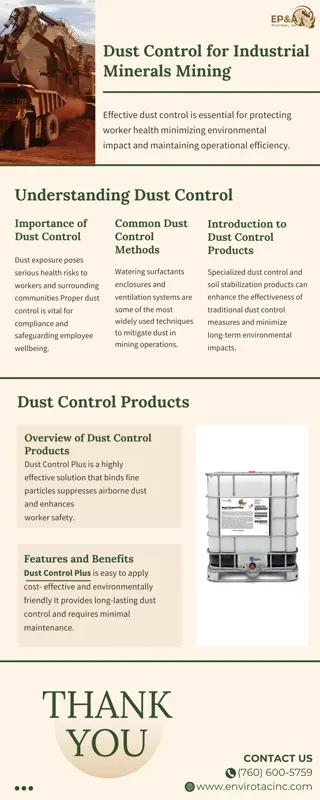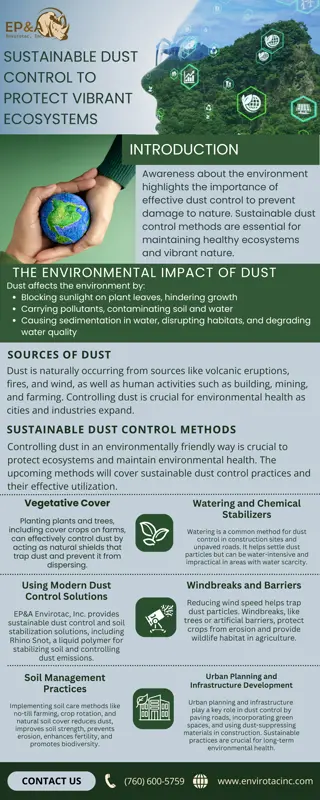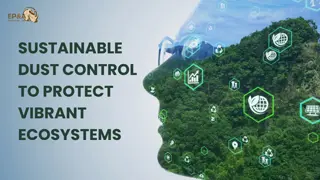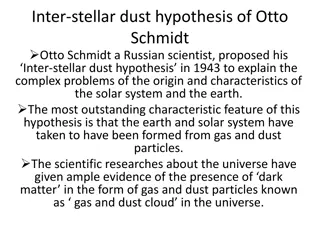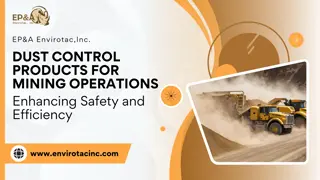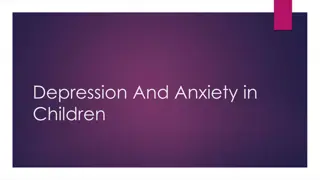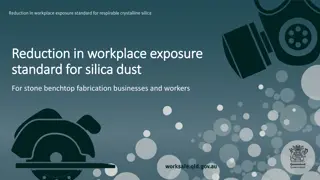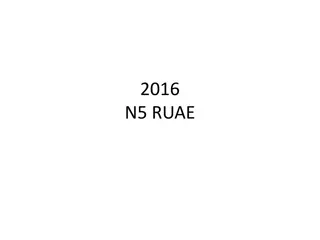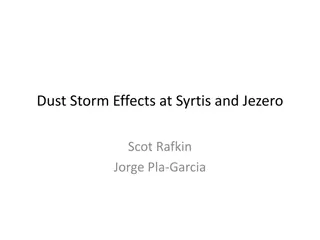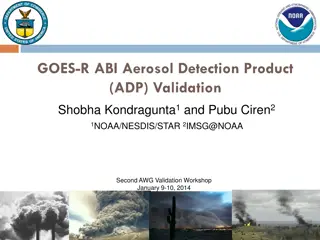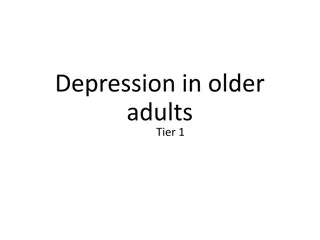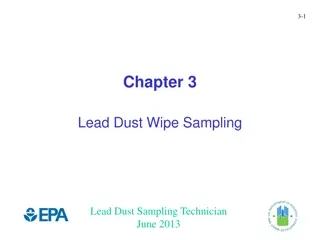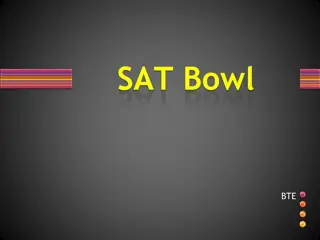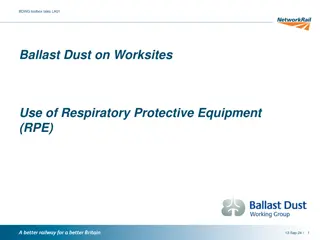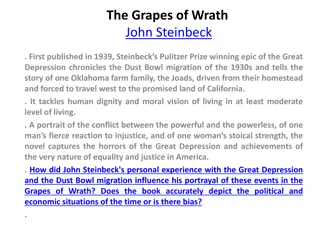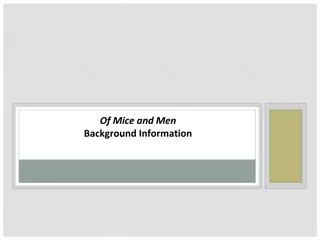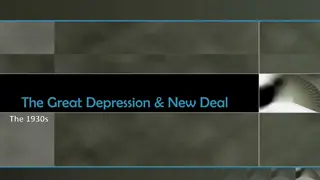The Great Depression and The Dust Bowl Overview
The Great Depression and The Dust Bowl were challenging periods in American history, where economic hardship and environmental disasters affected people's lives drastically. The Dust Bowl caused farmers to lose their land due to poor farming practices and severe weather conditions, leading to health issues from inhaling the dust. Meanwhile, the Great Depression saw financial collapse, with thousands of banks failing and families becoming homeless. Despite the struggles, these events ultimately shaped the country's resilience and recovery, paving the way for new programs and initiatives to alleviate the hardships faced by many.
Download Presentation

Please find below an Image/Link to download the presentation.
The content on the website is provided AS IS for your information and personal use only. It may not be sold, licensed, or shared on other websites without obtaining consent from the author.If you encounter any issues during the download, it is possible that the publisher has removed the file from their server.
You are allowed to download the files provided on this website for personal or commercial use, subject to the condition that they are used lawfully. All files are the property of their respective owners.
The content on the website is provided AS IS for your information and personal use only. It may not be sold, licensed, or shared on other websites without obtaining consent from the author.
E N D
Presentation Transcript
THE GREAT DEPRESSION AND THE DUST BOWL. By kodi culpin 9rib
The dust bowl was basically when the farmers land was turned infertile by poor farming methods and bad weather. The farmers sometimes had to move. And even if they sell there farms they will get quite a low price for it. Those who inhaled the dust suffered from Asthma, coughing spasms ,and shortness of breath. THE AFFECTS OF THE DUST BOWL
Those who inhaled the dust suffered from Asthma, coughing spasms ,and shortness of breath. Much like miners, Dust Bowl residents got loads of different breathing problems from breathing in the extremely fine silt. Dust pneumonia, called the brown plague, killed hundreds and was particularly lethal for infants, children and the elderly. FACTS ABOUT THE DUST BOWL.
The dust bowl was a series of dust storms, the storms destroyed homes , And ruined lives. HOMELESS,
The Great Depression lasted from 1929 to 1941 and only ended with America s entry into World War II. Franklin D. Roosevelt s New Deal programs employed hundreds of thousands of workers, many who were unskilled. Before the start of the Great Depression, there were 25,000 banks in the United States. By 1933, almost half of those banks (11,000) had failed. THE GREAT DEPRESSION.
PICTURES OF THE GREAT DEPRESSION.
Money almost became worthless. The Great Depression peaked between 1932 and 1933. Thousands of homeless families camped out on the Great Lawn at Central Park in New York City, which was an empty reservoir during the Great Depression. FACTS ABOUT THE GREAT DEPRESSION.
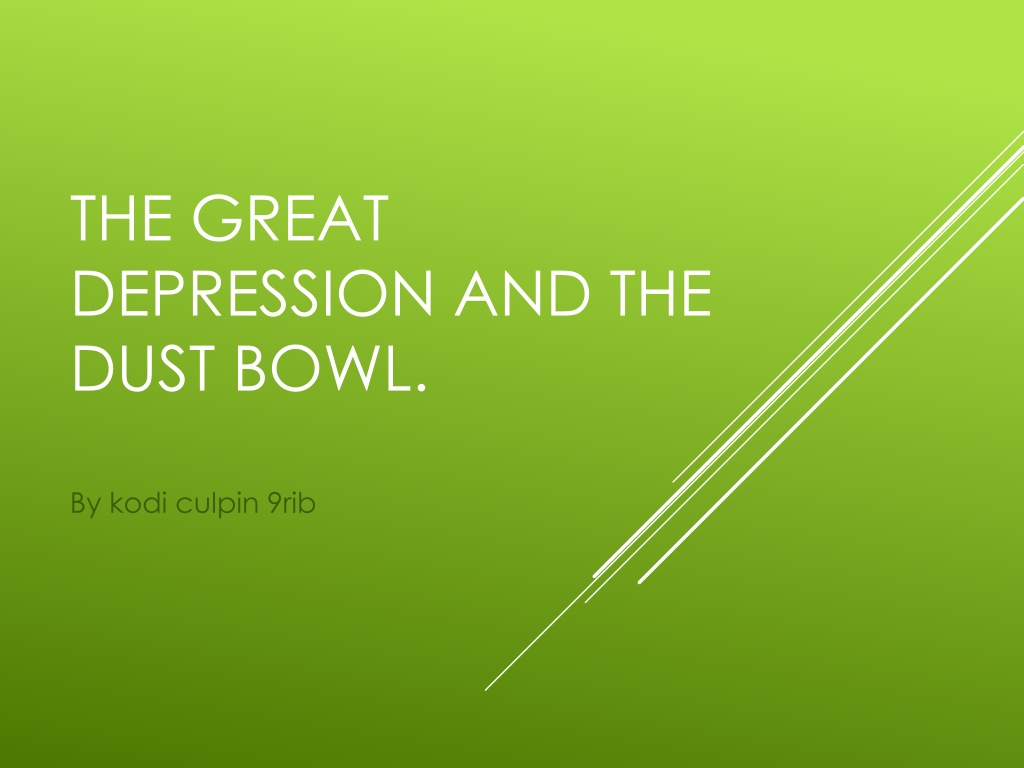
 undefined
undefined



